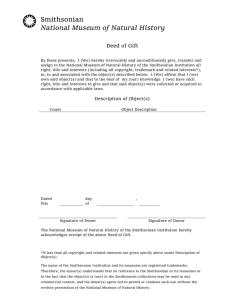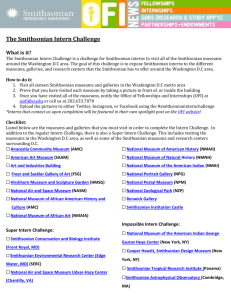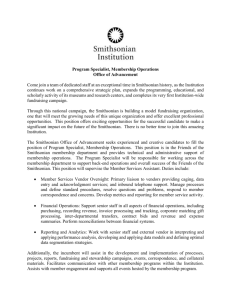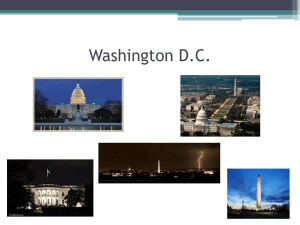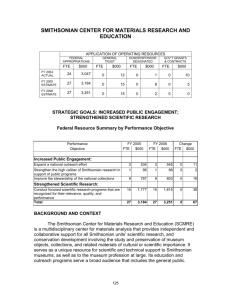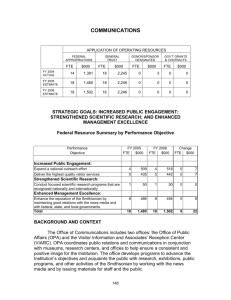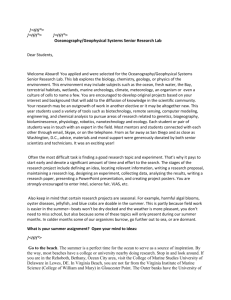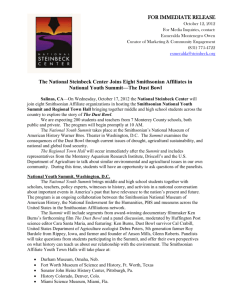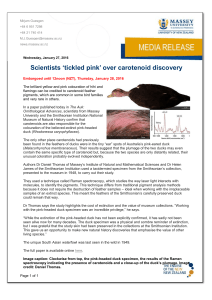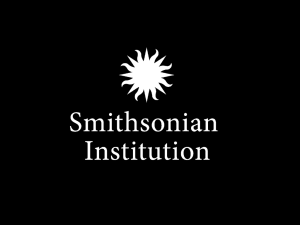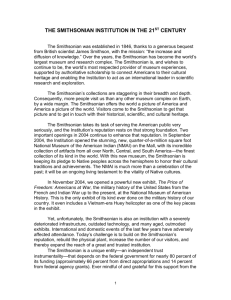welcoming remarks
advertisement
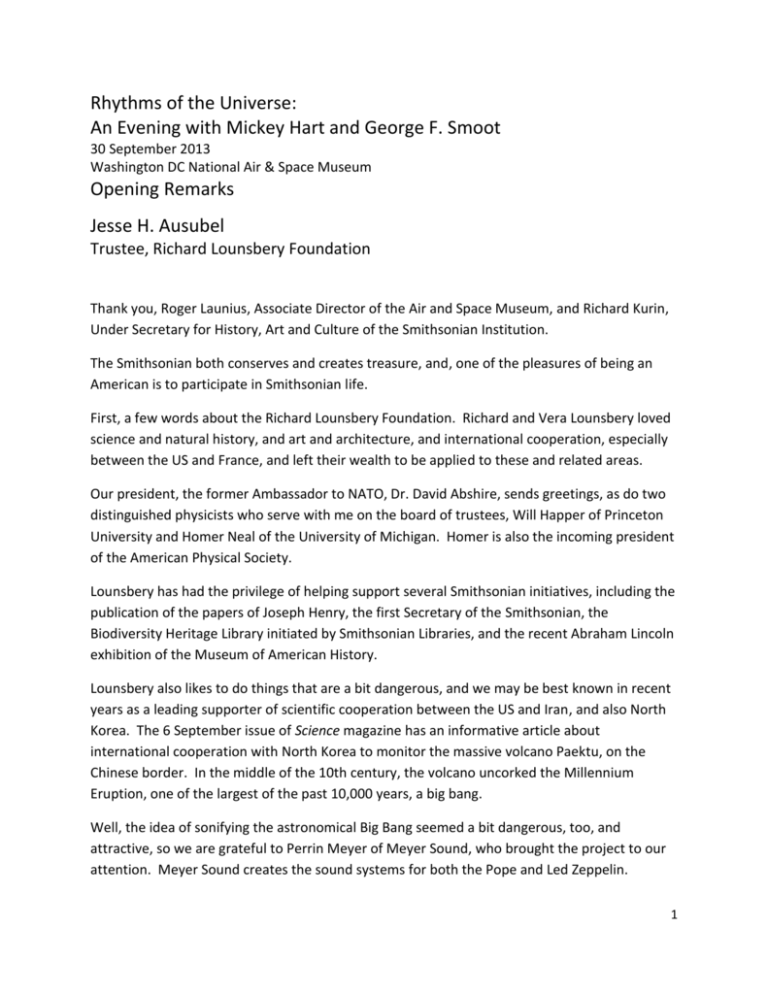
Rhythms of the Universe: An Evening with Mickey Hart and George F. Smoot 30 September 2013 Washington DC National Air & Space Museum Opening Remarks Jesse H. Ausubel Trustee, Richard Lounsbery Foundation Thank you, Roger Launius, Associate Director of the Air and Space Museum, and Richard Kurin, Under Secretary for History, Art and Culture of the Smithsonian Institution. The Smithsonian both conserves and creates treasure, and, one of the pleasures of being an American is to participate in Smithsonian life. First, a few words about the Richard Lounsbery Foundation. Richard and Vera Lounsbery loved science and natural history, and art and architecture, and international cooperation, especially between the US and France, and left their wealth to be applied to these and related areas. Our president, the former Ambassador to NATO, Dr. David Abshire, sends greetings, as do two distinguished physicists who serve with me on the board of trustees, Will Happer of Princeton University and Homer Neal of the University of Michigan. Homer is also the incoming president of the American Physical Society. Lounsbery has had the privilege of helping support several Smithsonian initiatives, including the publication of the papers of Joseph Henry, the first Secretary of the Smithsonian, the Biodiversity Heritage Library initiated by Smithsonian Libraries, and the recent Abraham Lincoln exhibition of the Museum of American History. Lounsbery also likes to do things that are a bit dangerous, and we may be best known in recent years as a leading supporter of scientific cooperation between the US and Iran, and also North Korea. The 6 September issue of Science magazine has an informative article about international cooperation with North Korea to monitor the massive volcano Paektu, on the Chinese border. In the middle of the 10th century, the volcano uncorked the Millennium Eruption, one of the largest of the past 10,000 years, a big bang. Well, the idea of sonifying the astronomical Big Bang seemed a bit dangerous, too, and attractive, so we are grateful to Perrin Meyer of Meyer Sound, who brought the project to our attention. Meyer Sound creates the sound systems for both the Pope and Led Zeppelin. 1 And of course we are hugely excited that Mickey Hart and George Smoot conceived and implemented the idea. Together with other support, the result has already been the remarkable CD Mysterium Tremendum, which Mickey has described as a work of “the billion year old orchestra of planetary motion.” In fact, waves and vibrations are at the heart of both music and physics, so at a deep level the project makes great sense, and we look forward tonight to the extension of the concept to the visual dimension. It has not escaped our attention that NASA’s representations of the fluctuations in the cosmic background radiation discovered by George Smoot resemble early Grateful Dead album covers. I would also like to recognize Max Angerholzer, Salve Bernabe, and Ben Yonas for helping make this event happen. To close on a personal note, on the 1st of June 1967, I was a 10th grader in Manhattan finishing classes, including physics, which I especially liked. We had a good, young physics teacher, who followed current developments, and the big news at the time included the first measurements of the Cosmic Background Radiation by Penzias and Wilson, predicted earlier by Herman and Alpher, and elaborated so convincingly since then by George Smoot with space technology documented in this great museum. Anyway, after school, my older brother and his friends asked me to join them on a walk around Greenwich Village. We ended up in Tompkins Square Park listening to the first concert in New York of the Grateful Dead. It was clear they were not just another blue band, but the drumming seemed a little weak, and of course a couple of months later Mickey Hart would join the band and solve that problem. Thanks to the Smithsonian, its Air and Space Museum and Center for Folklife and Cultural Heritage, for encouraging this marvelous harmonization of two great waves of American science and art. 2
